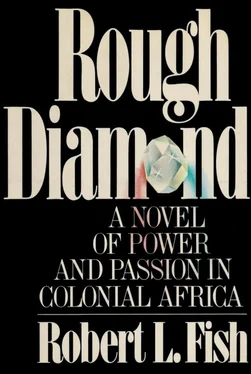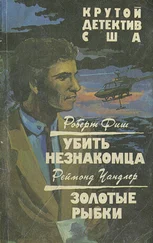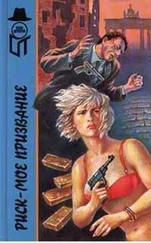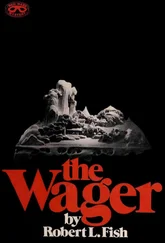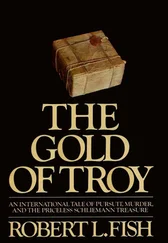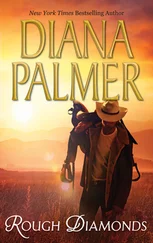“You going to become a kopje walloper?”
“Goin’ to try, anyways,” Barney said. “You got anythin’ for me?”
Weston laughed. “Don’t waste any time, do you?”
“Don’t have time to waste. You got anythin’ to sell?”
“Well,” Weston said, quite as if he had given the matter much thought, “I’ve got a book to sell, if you’re in the market. It’s called Macbeth; wrote by a bloke named Shakespeare, to quote the seller. We’ve all read it — several times, as a matter of fact — but I understand you’ve gotten smart and rent out the books, now. Certainly you could use another volume in your library.”
“What d’you want for it?”
Weston pretended to think. His redheaded partner bit back a smile and bent back to his work, listening.
“Well,” Weston said, “let’s see. You gave the book in trade for the right to cull some dirt of ours. What you found in the dirt earned you the princely sum of sixpence, as I recall. With the way prices keep going up in this town, I’d say a pound for the book would be about right.”
“I’ll give you thruppence,” Barney said without hesitation.
Weston looked shocked. “Even less than your sixpence? Barney, Barney! If that’s the way you’re going to try and buy diamonds, nobody will sell to you.”
“Never mind how I buy diamonds,” Barney said flatly. “We’re talkin’ about somethin’ I know about — books. I’ll make that four-pence, but that’s it.” He thought a moment, frowning. “Look! How many of you guys read that book?”
“Three,” Weston said, going along with whatever Barney had in mind, just for the fun of it. “Me, Mac, and Red here.”
“And you each read it a couple of times, you said.”
“It’s the truth. I wouldn’t lie about something like that.” Red coughed and bent farther over the table. Weston bent a hurt look at his partner. Barney was going on with his analysis, paying no attention to them.
“Now, say it took you each three days to read it in your spare time. It stays light until eight, say, and nobody’s goin’ to waste kerosene readin’ after that. Besides, everybody’s too tired. So say three days. That’s eighteen days between you. If you was rentin’ the book, you’d have paid eighteen pence, only I didn’t think o’ that in time. So take off the tanner you figure I sold the book for in the first place, and by rights you should be givin’ me back the book plus a shilling.” He looked at Weston steadily. “Fourpence is generous.”
“Barney,” Weston said fervently, “you are far too much for me! Come around tomorrow and you can have your book back without payment of any kind — on either side, that is.”
“I said fourpence and fourpence it’ll be,” Barney said. “I’ll pay you when I get the book. Now, about diamonds…”
Weston looked at him seriously, his smile gone.
“Barney,” he said, “we joke about many things, or else we’d go crazy in this town. But we don’t joke about diamonds.”
“Neither do I,” Barney said evenly. “What d’you have?”
Weston looked at him a long moment, and then opened a pouch of his belt. He brought out two stones and placed them on Barney’s palm. Barney pulled his loupe from his pocket and began to examine the stones one by one. He had spent many hours with Harry over the trays in Harris’s shop, examining stones that belonged to the trader, and he had learned a great deal. The stones he was looking at were of excellent quality, each about two carats in weight, he judged, and each of a shape that would cut to at least a carat if not more. He took his scale from its box and weighed them; the total weight came to four point three one carats. He put the loupe aside and looked at Weston.
“They’re beautiful stones, Jerry,” he said sincerely. “You could sell them stones directly to any trader in town.”
Weston took a deep breath. He wrinkled his forehead and looked a bit embarrassed. He glanced over at Red, but his partner merely shrugged and went back to his work, leaving Weston to handle the situation. Weston scratched his head.
“Barney, I don’t quite know what to say.” He looked as if he were truly at a loss for words, a rare thing for Jerry Weston. “I’m used to wallopers coming in here and telling me my stones have sixteen flaws each way from center, or that they’re yellow as daisies, as if I were color-blind or just started sorting this morning. I’m used to them telling me no trader in his right mind would touch my stones with a honey-dipper stick, and only the inherent goodness of the kopje walloper’s heart permits him to take food from his children’s mouths in order to see that I don’t starve.” He sighed deeply, and shook his head. “It’s enough to bring tears to the eyes of a Piccadilly tart.”
He leaned forward earnestly.
“Now, I’m going to tell you something, Barney! I know the stones are perfect, just as I know the sun rises in the east! And I know I can sell them to any diamond dealer in town. That’s exactly what I had planned to do. That’s why they’re separated from the others.” He studied Barney’s face carefully. “Now, I have a question for you. You tell me this: what do you think you could get from a trader on the street — say a trader like Harris or Beit — for these stones?”
Harris was the dealer where Harry worked; Beit was the largest diamond buyer in Kimberley; according to rumor he was Rhodes’ partner in the dealing as Rhodes was with Rudd in the mining. Barney thought carefully, then shrugged. “I would say, at least a pound a carat; maybe more. Those stones would go for thirty, thirty-five shilling a carat in London.”
“To the penny what I figured,” Weston said quietly. “Do you want to buy them for a pound a carat?”
Barney’s eyes lit up; then his face fell. “You said you don’t joke about diamonds!”
“I don’t,” Weston said flatly. “Well?”
“Then, sure, I want to buy ’em! What else you got?”
Weston pulled out the balance of the stones culled that day, stones that would cut quite nicely to half or three quarters of a carat, or stones with tiny flaws, some with a slightly yellowish tinge, stones that would make a fine border to a necklace, or act as baguettes to an opal or tourmaline ring. Barney examined them all carefully and fully, and made as good an offer as he felt he could make. In several instances he recognized that he may have offered more than he could get for the stones when he went to sell them, but he knew that in order to get started, to take business from the established kopje wallopers, he had to make concessions; and the only concessions he could make were in price. When he was done, he put his scale back in its box, tucked the diamonds he had purchased carefully into the various pouches of his newly acquired belt, handed over the fourteen pounds and change to Jerry Weston, and climbed back into the cart. Jerry Weston reached up and shook his hand, smiling at him genially.
“You’re apt to turn this town on its ear,” he said, “paying honest prices for diamonds.”
“If I don’t go stony,” Barney said with a grin.
“Son, you won’t go stony,” Weston said with conviction. He put on his serious air. “Mister, if you’d like to wager on that, I’d be willing to give you some very interesting odds.”
Barney laughed and let the horse lead him from the yard. It occurred to him he had never even learned the horse’s name, but it didn’t seem to make any difference; there never seemed to be a need to give the horse directions. In fact, Barney was sure that at dusk, no matter where they were, the horse would automatically head for the stable.
He thought back on his dealing with Jerry Weston. He was sure the larger of the two stones alone would bring him a reasonable profit, not to mention the smaller; and the others, on balance, he was sure, would not cost him a penny if they didn’t actually bring him additional profit. And he had made a start, a purchase at his very first stop; and a purchase he was sure very few, if any, other wallopers would have been able to consummate. He leaned back, the reins loose, enjoying being carried, albeit at a snail’s pace. Now that he was a property owner of a sort — for surely a horse and cart were property — and now that he was in an established business — for surely the buying and selling of diamonds was an established business — there was no longer any good reason not to go and visit Fay Bees. He had purposely attempted not to think of her during the long months when he had been working day and night, saving his pennies, but his attempt had never really worked; Fay was seldom far from his thoughts. He realized there was still no chance at all for him with anyone that beautiful, but it would be good to see her again, just to look at her, possibly to touch her, but definitely to dream. He could recall, as if it were just that day, walking beside her on the trek, the feeling of absolute normality in having her next to him. He could picture her blond beauty, her budding but lovely figure, her neat movements. He could feel her arms about him on the bank of the river; he could still smell the freshness of her hair.
Читать дальше
